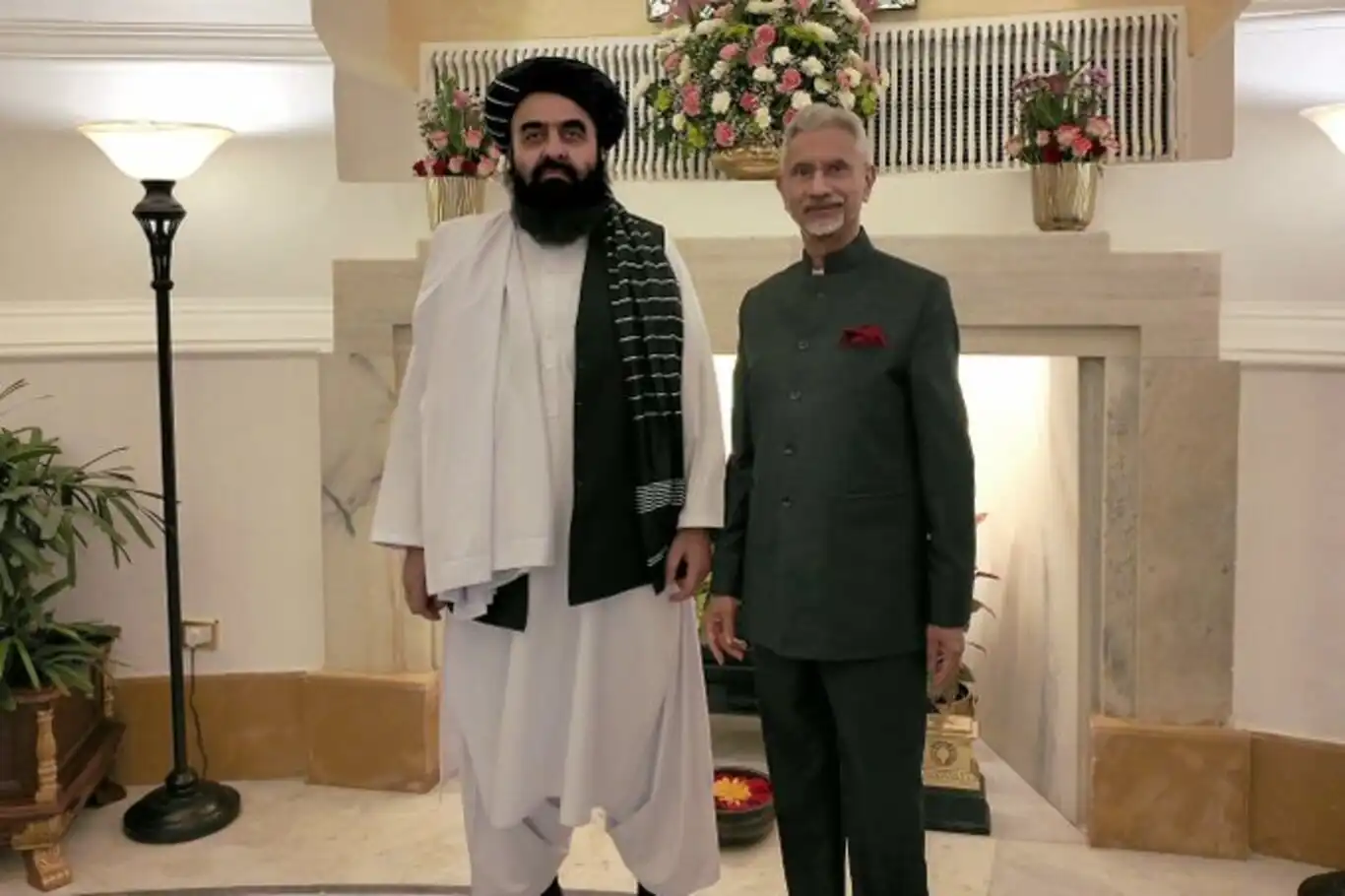India pledges to upgrade Kabul mission to embassy level


India’s Minister of External Affairs, Dr. S. Jaishankar, announced that New Delhi will upgrade its diplomatic mission in Kabul to the status of an embassy.
The announcement was made during a joint press conference with Amir Khan Muttaqi, the Foreign Minister of the Islamic Emirate, marking a significant development in bilateral relations.
Dr. Jaishankar emphasized India’s firm commitment to Afghanistan’s sovereignty, territorial integrity, and independence, affirming that both nations share a vision of mutual growth, stability, and prosperity.
“India is fully committed to the sovereignty, territorial integrity, and independence of Afghanistan,” he stated. “Kabul and New Delhi must continue to coordinate closely to combat terrorism in all its forms and manifestations.”
India’s new humanitarian aid package to Afghanistan includes 20 ambulances for Afghan hospitals, five of which were handed over symbolically during the meeting, along with the provision of MRI and CT scan machines, the supply of vaccines and cancer medicines, and support for the construction of housing for repatriated refugees, reflecting New Delhi’s continued commitment to the well-being and recovery of the Afghan people.
“The gift of 20 ambulances is another gesture of goodwill,” Jaishankar said. “The plight of forcibly repatriated Afghan refugees is a matter of deep concern. Their dignity and livelihood are important, and India stands ready to help construct residences for them and continue providing material aid to rebuild their lives.”
Dr. Jaishankar praised the historic cooperation between the two countries in water management and irrigation, noting that India is prepared to collaborate on sustainable water resource management based on Afghanistan’s needs and priorities.
Expressing satisfaction over the launch of new direct flights between Kabul and New Delhi, the Indian Foreign Minister said both nations have strong mutual interests in enhancing trade and commercial relations.
Jaishankar reaffirmed India’s dedication to educational and capacity-building programs for Afghan youth, noting that New Delhi will expand scholarships and study opportunities at Indian universities for Afghan students.
“Our educational and capacity-building programs have long nurtured Afghan youth,” he said. “We will expand avenues for Afghan students to pursue studies at Indian universities.”
He also praised the rise of Afghan sporting talent, particularly in cricket, and announced that India would extend further support to Afghan cricket development.
“The emergence of outstanding talent in Afghan cricket is truly admirable, and India is pleased to expand its support for Afghan cricket,” he added.
Highlighting improvements in people-to-people connectivity, Dr. Jaishankar noted that the new visa module for Afghans introduced in April 2025 has already enabled a greater number of medical, business, and student visas to be issued.
The upgrading of India’s diplomatic mission marks a turning point in New Delhi–Kabul relations, reflecting India’s recognition of the Islamic Emirate’s governance role and its commitment to rebuilding Afghanistan through humanitarian, educational, and developmental cooperation.
Officials from both sides expressed optimism that the strengthened partnership will help ensure regional stability, economic progress, and long-term peace in Afghanistan. (ILKHA)
LEGAL WARNING: All rights of the published news, photos and videos are reserved by İlke Haber Ajansı Basın Yayın San. Trade A.Ş. Under no circumstances can all or part of the news, photos and videos be used without a written contract or subscription.
Thousands of displaced Palestinians began returning to their shattered homes in Gaza City on Friday, as the long-awaited ceasefire agreement officially came into effect following its approval by the Israeli occupation government.
Sweden has announced a major investment exceeding $350 million to bolster its defenses against unmanned aerial vehicle (UAV) threats, signaling a strategic shift in response to recent airspace violations and modern warfare challenges.
Israeli occupation forces have reportedly started a phased withdrawal from Gaza following a ceasefire agreement brokered in part by international mediators, signaling a possible de-escalation in the region after two years of Israeli genocidal aggression.